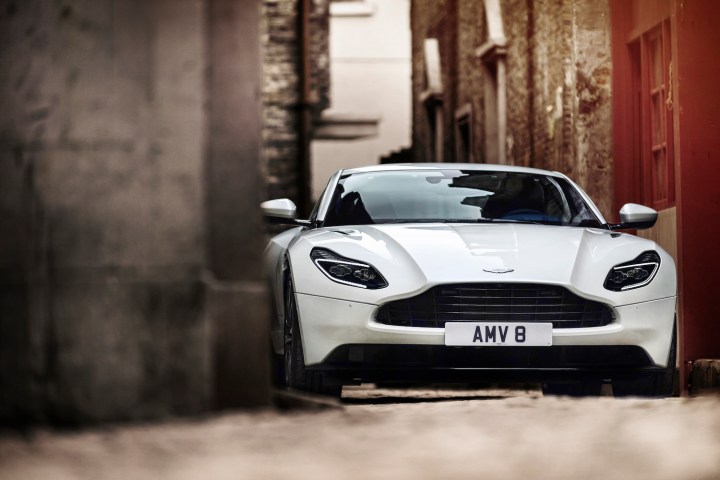
“We will be 100-percent hybrid by the middle of the 2020s,” Aston Martin CEO Andy Palmer said in an interview with the Financial Times. By the end of the next decade, about a quarter of the iconic British automaker’s cars will be all-electric, Palmer added.
Aston currently has a partnership with Daimler, which supplies the British firm with V8 engines and electronics, and has its own ambitious electrification plans. But Palmer said Aston will try to develop electric powertrain components in-house, because it views them as a core technology. It will buy battery cells from a third party, but plans to assemble them into battery packs itself, and build electric motors.
Aston’s first all-electric car will be the Rapid-e, an electric version of the Rapide sedan that will launch in 2019. The automaker originally partnered with LeEco, which also backs startup Faraday Future, on development. LeEco’s recent financial troubles forced it to pull out of the project, so Aston pushed back the launch date and cut the production run to an anticipated 155 cars.
The Rapid-e will likely serve as a testbed for a higher-volume electric car. That could be an electric version of the DBX, Aston’s first SUV. The DBX will launch in 2019 with a conventional powertrain, but the original concept version featured an electric powertrain, hinting at that possibility. Palmer said a hybrid powertrain may be offered as well.
Like Volvo and Maserati, Aston Martin has a relatively small lineup of cars that are relatively similar in design. It doesn’t sell any big trucks or other vehicles that might be difficult to electrify. As far as performance, cars like the Ferrari LaFerrari, McLaren P1, Porsche 918 Spyder, and Acura NSX have already shown that hybrids can be fast. Going for full electrification actually makes some sense for Aston, considering that its home country may ban sales of new non-hybrid cars in 2040, and emissions standards are tightening everywhere else. Still, it will be the end of an era.
Beyond hybrids and electric cars, Palmer also said Aston is planning a mid-engined sports car aimed at Ferrari. Unlike any current Ferrari — or Aston Martin — it will have a V6 engine, in the interest of lower emissions, Palmer said.
Editors' Recommendations
- The best Aston Martins of all time
- Boeing says 737 Max will stay grounded until at least mid-2020
- Hybrid model will be ‘highest performance 911 of all,’ Porsche CEO says
- 2020 Audi A8 gains plug-in hybrid powertrain, sporty S8 model
- Aston Martin’s DBX SUV has a luxurious interior, and a price to match


